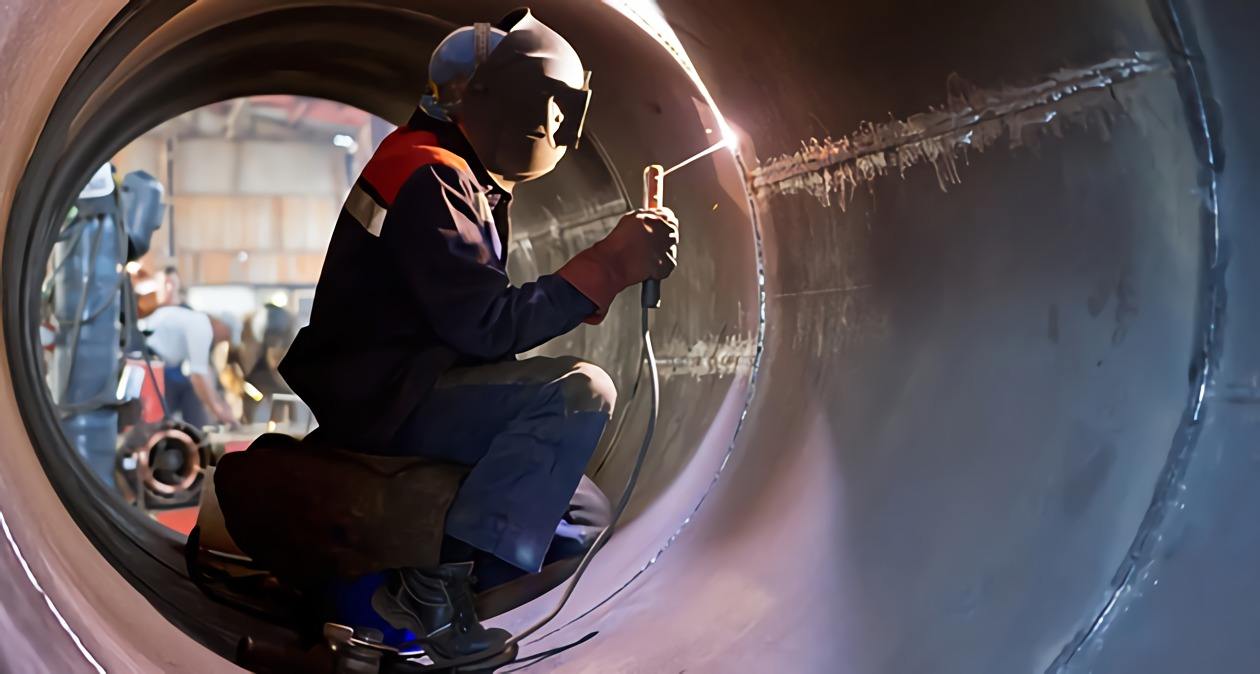TWS is a Great Training Option for Everyone
Learn more about how we can prepare you to advance your career.
Did you know there is a significant demand for welders, particularly in specialty welding fields like structural welding, pipe and pipeline welding, aircraft welding and thin alloy metal welding? Moreover, the U.S. Bureau of Labor Statistics (BLS) 1 reports that as of 2014, a welder can expect to make a mean wage of $40,040 per year, or even higher for particular specialty areas.
Therefore, welding is a solid career choice for a future full of earning potential and job security. There are different avenues you can explore when it comes to deciding on a career in welding. After completing vocational training, you will be a qualified candidate for a welding job. And the good news is that once you learn the basics at Tulsa Welding School, you can easily branch out as you learn, grow and hone your skills. Here is a list of some different career options in the field of welding.
Structural Welding
Structural welding involves using specified blueprints, work requests or verbal instructions to weld together a variety of structural metal components. To work in structural welding, you will need specialized training, knowledge of working with different types of metallic and non-metallic materials, and expertise in handling specific equipment. Structural welders are generally expected to know how to read blueprints, calculate dimensions, select rods, perform plate welding using different positions, as well as complete layouts and pipe bevel preparations. They must also be trained in all welding codes, safety procedures and equipment maintenance.
Pipe Welding And Pipeline Welding
In pipe welding and pipeline welding, a welder completes welds on pipes according to a certain set of standards. Pipes are designed to carry a variety of different materials such as gases and liquids; the pipes and weld seals must thus match the material that the pipe is carrying. Since pipes are usually placed at the site prior to being connected, a welder could be working under harsh conditions due to the environment and cramped spaces. Pipe welders are advised to obtain pipe fitting training to increase their chances of passing the special certification exam. During training, you will learn the basics of TIG equipment, procedure and setup, metal identification, as well as a variety of safety and preparation processes. You will also need to know how to operate the necessary portable equipment, be familiar with weld testing and procedures, and understand how to use a TIG stringer, fill and cap.
Have You Considered a Career in the Skilled Trades?
Fill out the form to recieve a no obligation info packet.
Thin Alloy Welding
Thin alloy welding is essentially similar to traditional welding methods. However, you must know how to work with different types of thin alloy tungsten for aluminum and stainless steel. You will also need to learn the proper heat settings for thin gauge metals, be familiar with purging and weld cleaning, and be competent at using TIG in a variety of different positions. Thin alloy welding may require a multitude of other specialized training and knowledge.
The Bottom Line
The BLS 2 projects job opportunities for welders to grow by 6% between the years 2012 and 2022. However, welders trained in all the latest technologies can expect to be in especially high demand. Additionally, due to our nation’s aging infrastructure and the large number of welders reaching retirement age, there is a need for skilled welders to help build new bridges, roads, buildings, pipelines and power generation facilities.
If you want a rewarding career in welding, contact Tulsa Welding School today. TWS offers a variety of specialized programs and financial aid options to get you well on your way to a career that will provide you with a stable income and a promising future.
1. http://www.bls.gov/oes/current/oes514121.htm
2. http://www.bls.gov/ooh/production/welders-cutters-solderers-and-brazers.htm#tab-6







